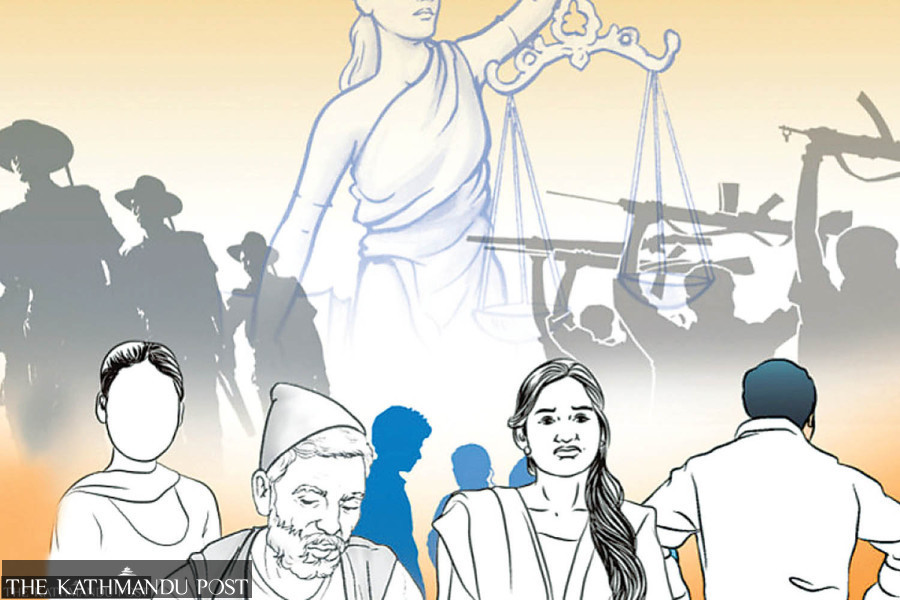National
Recommendation committee gives aspirants 10 days to apply in two transitional justice commissions
Retired supreme and high court judges, retired secretary-level bureaucrats or one qualified to be a top court justice are eligible for the role of chair of either of the commissions.
Post Report
The committee tasked with nominating office bearers for the Truth and Reconciliation Commission and the Commission of Investigation on Enforced Disappeared Persons has called applications from the aspirants.
Those willing to compete as the chairpersons or the members of the commissions have 10 days starting Thursday to file their applications. The selection committee has set three modalities for application. While individual aspirants can directly apply for any of the positions, different human rights and victims’ organisations can also make recommendations at the organisational level. Such institutions, however, need to produce the evidence of consent from such individuals.
Similarly, the recommendation committee can also find the candidates on its own. The provision of organisational nominations and selection by the committee itself was included as renowned figures might hesitate to apply for positions in the commissions.
Retired supreme and high court judges, retired secretary-level bureaucrats or one qualified to be a top court justice are eligible for the role of chairperson of either of the commissions, as per the Enforced Disappeared Enquiry, Truth and Reconciliation Commission Act. Those who hold a master's degree, are not members of any political party at the time of application and have contributed to human rights, conflict resolution or law are eligible for appointment as members.
“We decided to call the applications after giving final shape to the working procedure incorporating the feedback,” said Lily Thapa, spokesperson for the panel who is also a commissioner at the National Human Rights Commission. “We will consult with concerned stakeholders until the deadline for the application ends.”
The former chief justice Om Prakash Mishra-led panel has invited insurgency-era victims and civil society members for feedback on the selection process on Friday.
The Mishra-led committee was formed by the KP Sharma Oli administration on March 24, after consultation with CPN (Maoist Centre) chair Pushpa Kamal Dahal, who is also leader of the main opposition in the House of Representatives. The new committee retained the coordinator and the three members from the previous panel, which had failed to accomplish its job within a two-month deadline.
However, the commission is represented by its commissioner, Thapa. Earlier, commissioner Manoj Duwady had represented the commission. The committee has until May 23 to accomplish its job.
After reviewing the applicants’ resumes, the committee will publish a short-list of the candidates.
Those shortlisted will be interviewed and asked to give presentations. Finally, two chairpersons and eight members will be recommended for appointment, and the Cabinet will make the final appointments. The new teams will have four years to complete the investigation, seek the truths, recommend for reparations and prosecution.
This is the second time in three months that the Mishra-led panel is shouldering the responsibility to pick the office bearers in the truth and disappearance commissions.
After long negotiations among major parties, the federal parliament amended the Enforced Disappearances Enquiry Act in August 2024, more than nine years after the Supreme Court turned down a number of amnesty provisions in it. Two months later, the government on October 18 formed a five-member panel coordinated by Mishra to recommend names for the two chairpersons and eight members for the two commissions combined.
However, earlier, the Mishra-led panel failed to accomplish its job within the deadline following serious differences among its members over the names. It exhausted its tenure in mid-December last year.
The two commissions have remained inactive since July 2022 after the government decided to extend their terms without retaining their chairmen and members.
Formed in February 2015 to investigate war-era crimes and atrocities, the truth commission has received 63,718 complaints. Similarly, the disappearances commission has around 2,500 complaints to investigate and find out the whereabouts of the people forcibly disappeared by the Maoist and the state security forces.




 10.12°C Kathmandu
10.12°C Kathmandu














